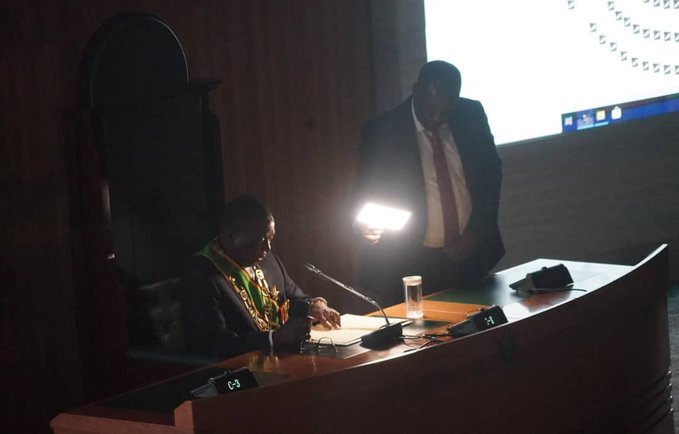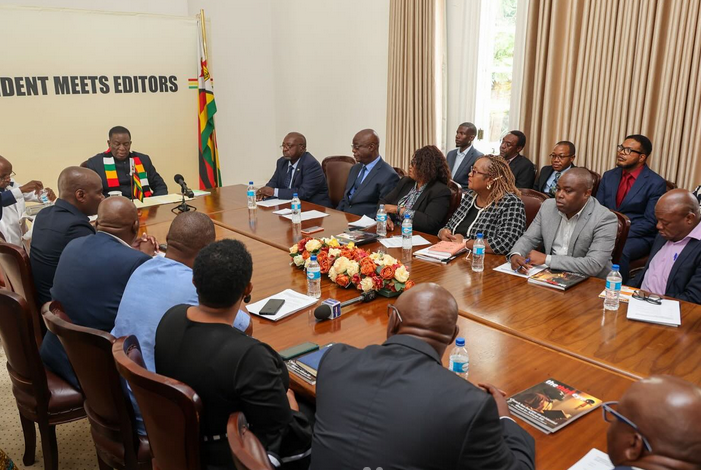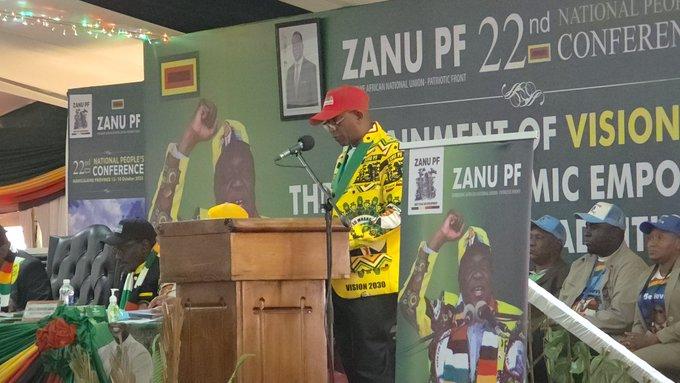Prominent banker and economist Nigel Chanakira has warned that Zimbabwe risks eroding confidence in its financial system and undermining efforts to restore a credible local currency unless the Government and central bank adopt a more consultative, transparent, and market-aligned approach to monetary policy.
Speaking on the sidelines of the In Conversation with Trevor Ideas Festival last week, Chanakira criticised the Reserve Bank of Zimbabwe's (RBZ) current regulatory stance, saying "blunt" interventions - such as zero-interest foreign currency balances and administrative policy directives - were discouraging savings, investment, and long-term lending.
"Right now, it's like they [authorities] operate in a silo," Chanakira said.
"How do you take money from a guy who wants to import and then lock up his money for zero percent for two years? Where in the world? That's operating in bad faith."
Zimbabwe's central bank has extended the multi-currency system - dominated by the US dollar - until December 2030, while maintaining its goal of eventually reverting to a single local currency.
However, Chanakira warned that making declarations about ending multi-currency use without first restoring confidence in the financial system was counterproductive.
"We want a local currency, but don't impose it on us. Persuade us so that we have confidence," he said.
"If you declare that by 2030 there will be no multi-currency regime, it breeds distrust. It might even cause capital flight."
He noted that the 2030 deadline was already prompting defensive behaviour from banks and depositors, who were adjusting their lending and investment strategies to avoid long-term exposure.
"Banks are lending for loans that mature before December 2030," Chanakira explained.
"It means you have a bunching up of maturities. Investors are saying, ‘I must get all my money back before 2030 and start parking it elsewhere.' That's rational economic behaviour because there is no confidence."
The former Kingdom Bank founder said such uncertainty was constraining the supply of long-term credit needed for housing, infrastructure, and industrial expansion, while reinforcing the public's preference for the US dollar.
He argued that the solution lies in rebuilding functional financial markets driven by incentives, not coercion.
"We are using very blunt monetary instruments to solve problems that could be fixed more elegantly," he said.
"You cannot promote savings and investment while offering zero percent. We need policies that are national in approach and keep all stakeholders content - the saver, the investor, the banker, and the central bank."
Chanakira also criticised the issuance of zero-coupon, non-tradable instruments by the RBZ, saying they contradict the broader goal of encouraging investment and confidence in the local currency.
The veteran banker stressed that restoring trust in the Zimbabwean dollar will depend on disciplined fiscal management, transparent monetary operations, and allowing market forces to play a greater role in determining interest rates and liquidity conditions.
"The proof of the pudding is in the eating," he said.
"If the government proves that it is responsible, people will choose the local currency willingly. Confidence cannot be commanded; it must be earned."
Economists have long argued that restoring a stable and credible local currency requires sustained macroeconomic stability, predictable policy signals, and consistent coordination between the fiscal and monetary authorities.
Until such alignment is achieved, Chanakira warned, banks will continue lending short, investors will remain cautious, and citizens will keep favouring the US dollar as their store of value.
- Newsday
 Zimbabwe announces strict enforcement of axle load limits
Zimbabwe announces strict enforcement of axle load limits  SA decry 'non-existent' Beitbridge border post security
SA decry 'non-existent' Beitbridge border post security  Millions celebrate Diwali festival in India
Millions celebrate Diwali festival in India  Zimbabwe's dollar stock exchange surges 45%
Zimbabwe's dollar stock exchange surges 45%  Gold edges up as traders await guidance
Gold edges up as traders await guidance  Karo Platinum Project capex rises to US$546m
Karo Platinum Project capex rises to US$546m  Young Investment Professional (YIP) Graduate Programme 2019
Young Investment Professional (YIP) Graduate Programme 2019 









 Young Investment Professional (YIP) Graduate Programme 2019
Young Investment Professional (YIP) Graduate Programme 2019
Editor's Pick